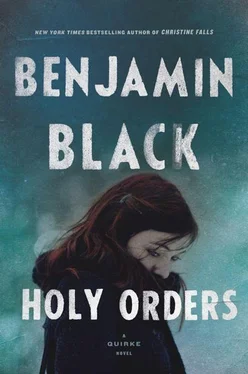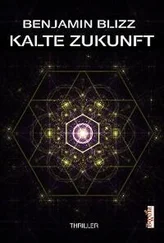Phoebe was sitting in the middle, with David at her right hand and Sally at her left. They seemed to be absorbed in the picture. She had known Sally for only a fraction of the time that she had known David, yet she suspected she knew more about her, or at least understood more about her, than she did about him. David was kind, attentive, intelligent, all the things a boyfriend was supposed to be, yet it seemed to her that deep down, at the very core, something was lacking in him, some essential spark. It was not just to do with her. There was a remoteness to his dealings with the world, the world of which she was only a part. She did not resent him for this, or feel neglected. In a way, his detachment was one of the things that made him attractive, since he demanded so little of her. What was lacking between them was, simply, passion; she saw that now, now that she had met Sally.
What if David asked her to marry him? The thought made her tremble, which in turn was a shock. Why was everything suddenly so fraught? Nothing more had happened between her and Sally, after that kiss, but the effects of it still reverberated in Phoebe’s nerves and along her veins, so that she felt as if it had taken place but a moment ago. She was, she realized, sharply conscious of Sally’s physical presence in the seat beside hers. Sally had a nice smell — violets, she thought it must be, a perfume of violets, mingled with a faint milkiness; there was something about Sally’s smell that reminded Phoebe of someone else, someone she had known, but she could not think who.
When the picture was over they boarded a bus, and went up to the top deck and sat at the front, Phoebe and David together in one seat and Sally sitting alone on the other side of the aisle. A fine rain was falling that misted the windows, and the neon signs above the shops wobbled like undersea lights. The three of them hardly spoke. The pictures always had that effect. Phoebe had noticed it before: people came out like zombies, caught halfway between the screen fantasy they had been absorbed in and the ordinary, familiar world of buses and rain and huddled passersby.
When they got to the flat Phoebe lit the gas fire and went into the kitchen to make coffee. But there was no coffee, and she returned to the living room to ask if cocoa would be all right. Sally was standing by the window, as David had stood earlier. She was looking down into the street, though there could not have been much to see, with the darkness, and the rain. David was sitting in an armchair, leaning forward with his elbows on the armrests, smoking a cigarette. They looked, Phoebe thought, like a couple who had just had a fight and had turned away from each other in a seething silence.
When Phoebe spoke, David gave her a strange, blank stare that lasted only a second but that shook her nonetheless. Had they said something to each other, had there been a disagreement between them? How would there have been time? She had been away in the kitchen for no more than a minute or two. Had one of them said something about what had happened earlier, when they had known each other for only a matter of minutes? Had they kissed then? Had they? She could not believe it; it seemed preposterous, a figment of her overheated imagination. Yet the possibility gnawed at her. What was she to believe, what was she to trust?
She made the cocoa in a saucepan. Her hands would not stay steady. Outside, the horn of a passing car sounded. Why would anyone need to blow a car horn in a deserted street, at night? She carried the saucepan to the table and began to pour the cocoa into three mugs. Abruptly she remembered who it was that Sally’s smell reminded her of — Jimmy, of course! How could that be? Jimmy, a chain-smoker, had smelled of cigarettes and not much else, as she remembered him. Yet it was definitely Jimmy who had come unbidden to her mind as she sat in the cinema feeling the warm proximity of Sally’s body and breathing in her milky, violet smell.
They drank their cocoa and talked a little about the picture. David had thought it silly, though he admired Bette Davis’s acting, or so he said. Sally gave no opinion. She seemed distracted. David smoked another cigarette, and when he had finished it he rose and said that he should be going. He nodded good-bye to Sally, who smiled at him absently. Phoebe walked him to the door of the flat. On the landing she expected him to kiss her, but he only smiled instead, vaguely, as he had smiled at Sally, and went off down the stairs.
When she returned to the living room, Sally was sitting in the armchair where David had sat, leaning forward with the mug clasped between her hands. She glanced at Phoebe, but said nothing. Phoebe waited. Did she not have anything to say about David, this man she had met for the first time tonight, Phoebe’s boyfriend? But Sally, it seemed, had nothing to say.
“I have a headache,” Phoebe said. “I think I’ll go out for a walk.”
She was angry, at David, at Sally, at herself.
“A walk?” Sally said, turning to her. “In this weather?”
Phoebe did not answer, only took up her coat. She had never realized before how much she disliked the smell of cocoa.
* * *
Sally had been right, of course: it was foolish to have come out like this, in the darkness and the drifting rain. She had not even thought to bring an umbrella. Yet she could not go back. At the foot of the front steps she turned left and walked in the direction of Huband Bridge. She could see the willow tree there, beside the bridge, leaning in the light from the streetlamp with a fuzz of sallow mist surrounding it.
The street was deserted, and the only sound was that of her own footsteps clicking on the pavement. Her mind was in turmoil. Inside, she seemed to be suddenly in a strange place, where she no longer knew the people she had known, the people she thought she had known. Was this jealousy? Was this what it felt like to be jealous, this frenzy of the mind and this dull hard pain in the breast? Faces rose up, David’s face, Sally Minor’s, and hung there before her, stark, hollow-eyed, like the masks in an ancient Greek play. She was in a sort of panic; she imagined herself revolving slowly round and round, like someone who had been hanged. She did not want to feel this way; she did not want to be thinking these thoughts.
They had not kissed. David and Sally, they had not kissed, she was sure of it. That was all the work of a fevered imagination. It was. It was .
If only Sally had said something about David, something simple and innocent. He’s nice. I like him. You’re lucky.
She wished Sally would go; she wanted her to go now, to be gone when she returned, gone back to Kilburn or wherever it was, to her flat over Mr. Patel’s shop, to the smell of curry and the sound of the grocer’s children squabbling. She wanted never to have known her. She wanted that kiss not to have happened. She wanted—
She had not heard him come up behind her. Afterwards, it seemed to her that before anything else she had caught his smell, of cigarette smoke and wet sheepskin. He was wearing the same cloth cap; she recognized it at once. Strange, how she could think of so many things in such a short span of time, a couple of moments, no more than that, before he stepped in front of her and caught her by the wrist. He was the man who had come into the café that first day and looked at Sally and at her before going out again, into the rain. He was the same man who had been standing opposite the flat, by the railings above the towpath, with a cigarette cupped in the palm of his hand. Why had she not paid him more attention?
He had thrust his face close up against hers and was saying something. He had not twisted her arm, he was only holding it, but in such a steely grip that she feared he would crush the little knob of bone at the side of her wrist. Should she scream? She was sure her voice would not work.
Читать дальше












